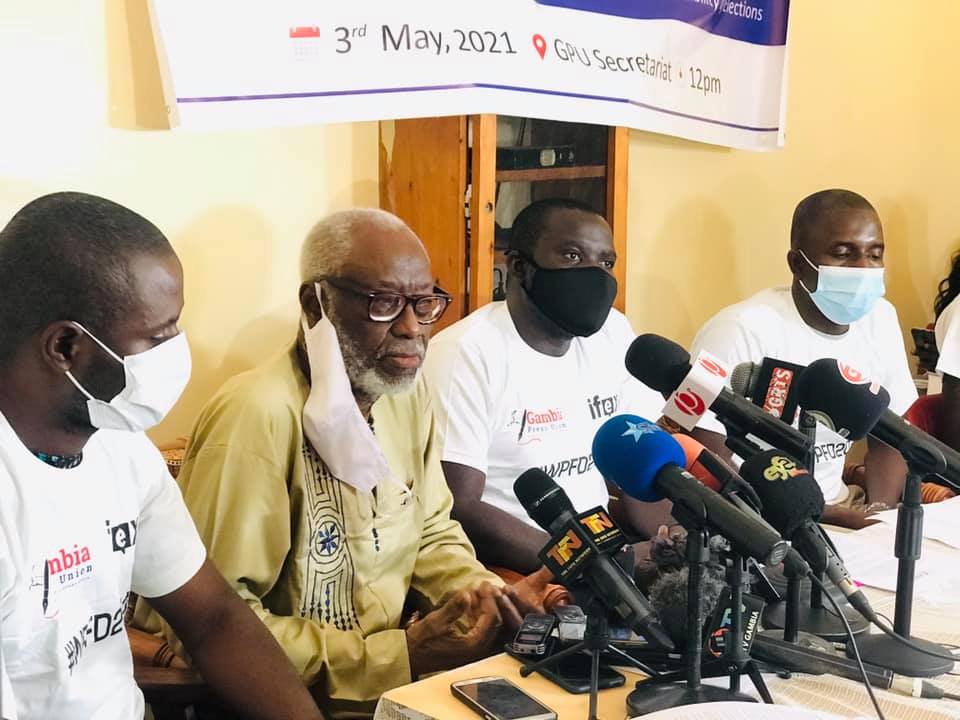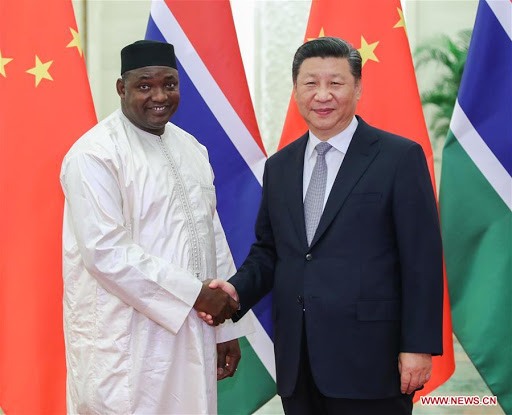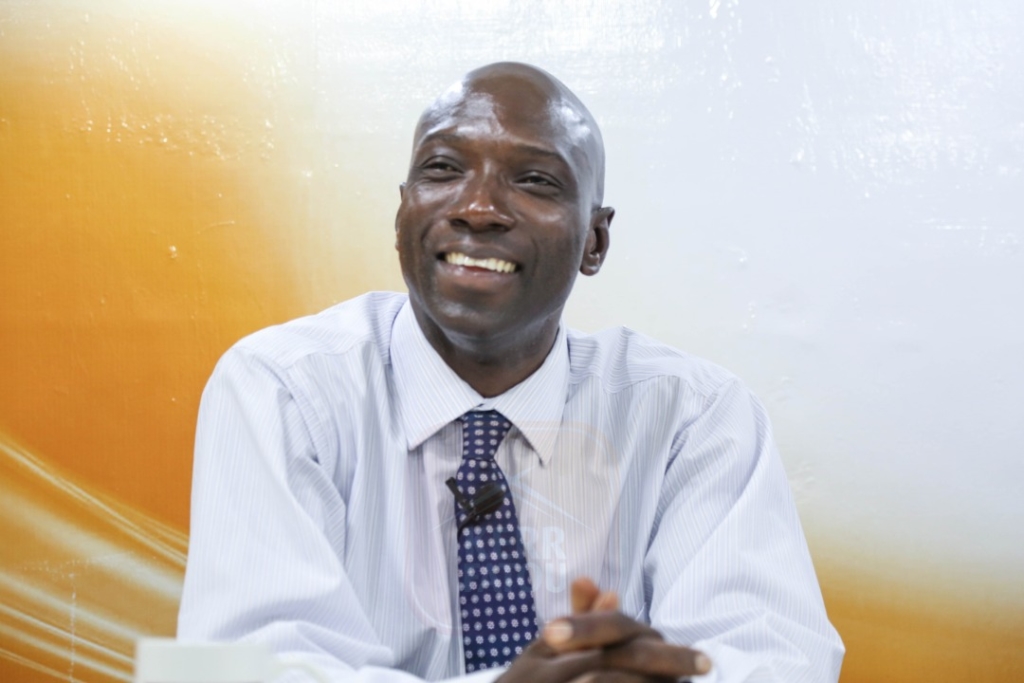This year marks the 30th anniversary of the Windhoek Declaration, which was developed by African journalists pressing for a free, independent, and pluralistic African press. The Declaration ultimately gave birth to the commemoration of World Press Freedom Day in 1991.
The Day was eventually adopted by the United Nations General Assembly to serve as a reminder to governments of the need to respect their commitment to press freedom. It is also a day of reflection among media professionals about issues of press freedom and professional ethics.
Every year, 3rd May is a date which celebrates the fundamental principles of press freedom, to evaluate press freedom around the world, to defend the media from attacks on their independence and to pay tribute to journalists who have lost their lives in the exercise of their profession.
It serves as an occasion to inform citizens of violations of press freedom – a reminder that in dozens of countries around the world, publications are censored, fined, suspended and closed down, while journalists, editors and publishers are harassed, attacked, detained and even murdered.
The theme adopted by UNESCO for this year’s event is ‘Information as a Public Good’. However, in The Gambia, the GPU has chosen a local theme: ‘Safety of Journalists is Imperative for Credibility of Elections’. This theme is chosen given the reality of the media environment in the country.
This year’s World Press Freedom Day commemoration coincided with the release of the World Press Freedom Index by Reporters without Borders. The Gambia is ranked 85th out of 180 countries, indicating a modest progress of 2 points, from the 87th position last year.
Indeed, the space for media freedoms and freedom of expression has expanded since the downfall of dictatorship.
There are more media houses in the country than ever before and this means more people have access to the media to express their opinions. This diversity and plurality of opinions in the media counts in favour of the country.
And for the first time since the country’s independence in 1965, the government granted a subsidy to the media to help them through a financial and operational difficulties resulting from the coronavirus pandemic.
However, beneath the ranking lies facts that reveal that the media situation in the country is only better than the dark days of the dictatorship. With a score of 30.76 points in the RSF measurement, the media landscape in this country is still a ‘problematic situation’. So our improvement in ranking does not necessarily mean the media environment in the country is ideal.
One of the reasons the country is still stuck in this situation is because of the unfriendly environment and legislations against the media.
The long-awaiting major reforms of the repressive media laws in The Gambia continues to drag, four years on. The Media Law Review Committee’s final report submitted to the Ministry of Information and Communications in May 2018 recommended for the review and amendment of the following legislations:
- Information and Communications Act of 2009
- Criminal Code of 1933
- Indemnity Act of 2001
- GRTS Act of 2004
- Telegraph Stations Act of 1990
- Officials Secrets Act of 1922
- Newspaper and Broadcasting Stations Act of 1944
All these laws are recommended for review because they have problematic and disturbing provisions that are not in line with international norms, standards and democracy.
Four years on, none of these laws have been successfully amended. A number of Bills seeking to repeal of the laws have been in parliament, gathering dust while no concrete steps have been taken by the government towards repealing or amending the rest of the anti-free press laws.
The bill on Access to Information is still at the National Assembly, one year on.
But the problematic media situation pointed at in the RSF Index is not just about the laws, but also the practices.
Lest we forget, just last year, the government arbitrarily and illegally closed down two radio stations, King FM and Home Digital FM, for a whole month. As if the closure was not bad enough, the managers – and two reporters – of these stations were also arrested and detained for no legally justified reason.
And the recent political rhetoric from the State House in Banjul about the media is so disturbing. The president’s accusation of journalists of biased and unfavourable coverage is a stark reminder of how the Jammeh government gradually started his onslaught against the media.
Our records show that in less than four years, more than 15 incidents of physical assault on journalists and media professionals occurred. And all the attacks were perpetrated either by the police or politicians, including supporters of the president. No serious investigation has been carried out. No one ever brought to book. The climate of impunity for crimes against journalist persists.
Therefore, as the country goes into the first-post dictatorship presidential election in December, the safety of journalists and the issue of impunity remain a concern to the GPU, hence the local theme ‘Safety of Journalists Imperative for Credibility of Elections’.
The theme is premised on an analysis of the current realities and trends which indicates that hostilities faced by journalists will likely worsen as in the run to, and during the election. And the fact that the protectors (police and politicians) have become the perpetrators makes it even more worrying.
Elements in the Gambia Police Force who have been oriented to hate journalists and trample on press freedom, continue to occupy the frontline of the state security’s anti-riot efforts.
The politicians, by their words and action, continue to incite their followers against journalists.
As part of efforts to tackle this unfortunate trend, the GPU has developed and submitted a position paper to the government through the Minister of Information. The Union has made a case, based on evidence and insights, for the government to provide proactive and reactive mechanisms towards safeguard the safety of journalists and combat impunity for crimes against journalists in line with the UNESCO Plan of Action.
Also, the GPU working with our partners continues to roll out safety training programmes for journalists and dialogues with politicians and security personnel.
A policy is being developed to establish security protocols, including a safety manual for reporters.
Series of training have been outlined, ahead of the election. These trainings will include First Aid training for reporters, safety training, and election reporting.
Media-Security dialogue and training of security officers on safety of journalists is also coming up.
We will have an interface with political party leaders, and information kits on safety of journalists will also be produced.
However, while these things are being roll out, we hereby encourage journalists to get themselves the safety jackets and press cards at the GPU in order to reduce the risk of incidents of mistaken identity.
Above all, we would like to remind journalists of the creed: ‘No story is worth your life.’ Sharpen your sense of security in order not to fall easy prey to violent attacks.
We wish to remind the government that it is the responsibility of the state to guarantee journalists’ safety and combat impunity and enable the media to carry out its work independently and without interference.
Finally, in commemoration of this World Press Freedom Day, we wish to pay tribute to the fallen heroes of the Gambian media.
These are those who sacrificed their lives and livelihoods for the freedom and development of Gambian media in particular, and an inclusive and democratic Gambia based on respect for human rights and dignity.





